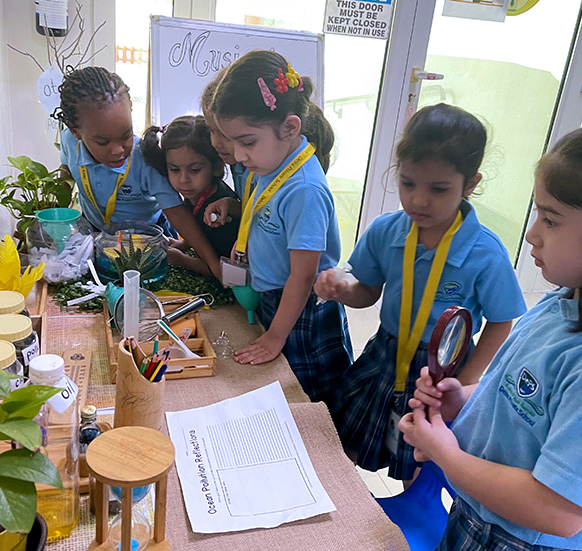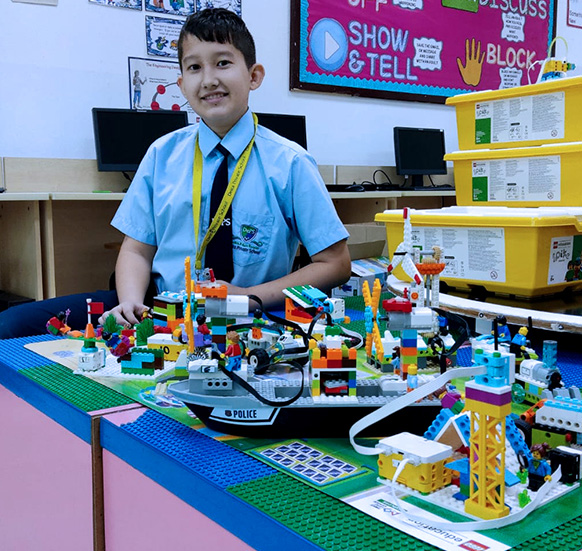DePS School Nurses / Doctor
The role of the school nurse plays a crucial part of school life at DePS and we have highly qualified school nurses on site at all times who work closely with the students and teachers. The School nurse provides a variety of services such as health education within schools, carrying out developmental screening, undertaking health interviews and advising on immunisation programmes.
The school nurse will also;
- Administer first aid and emergency care
- Collaborate with parents, staff and health care professionals regarding specific health concerns
- Coordinate and assist with school medical examination
- Maintain school health records
- Co-ordinate and advise with Dubai Health Authority school immunisation programs
Our nurses have a multitude of experience in health promotion including child protection, health education and screening. They also have a great deal of insight and knowledge in the health needs of children and teenagers.
Clinic Facilities
The Clinic at both DePS schools is equipped to deal with all minor and major injuries. The layout is such that we can accommodate those children who visit for minor ailments and those who may require rest and monitoring. We also have available to us health screening equipment which includes visual screening aids for vision testing. This allows us to monitor the childhood milestones and record such information is each child’s school health record.
In the event of any medical emergency, we have protocols in place to ensure that this will be dealt with safely and professionally, to allow the best possible care for each child. We also have several members of staff who have undergone First Aid training. Emergency equipment is available in areas throughout the school and if required, external medical emergency support is readily available for the school.
Responsibility of the School Leadership and Administration:
- Ensure adherence to standard, contact and airborne precautions for infection control as per local authority guidelines.
- Arrange for the school clinic and classrooms to be cleaned and disinfected regularly, including all floors and other surfaces to be washed daily.
- Approved list of antiseptic and disinfectants shall be used in the facility as per local authority guidelines
- Use and safe storage of antiseptics and disinfectant solutions must be according to manufacturer's instructions.
- Train staff in these procedures and have appropriate material and equipment available (routine training)
- Provide dedicated waiting areas for symptomatic patients and prevent overcrowding in health facilities.
- Ensure adequate supplies of PPE (surgical masks, N95 masks, gloves, eye shields, thermo scan device) and infection prevention and control supplies (hand hygiene supplies) for school.
- Provision of appropriate separate Isolation Room (adequately ventilated with separate bathroom).
- Ensure safe waste management, proper linen cleaning, environmental cleaning and proper disinfection of frequently touched surfaces with approved disinfectants.




